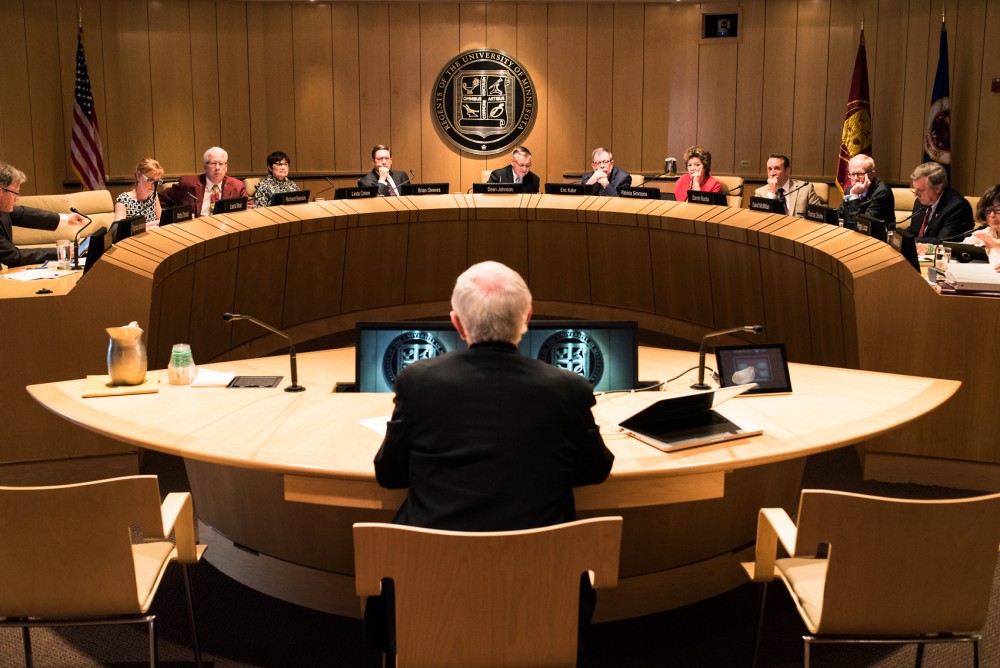I never thought I’d use “nail-biter” and “regents” in the same sentence.
Nevertheless, in late February, four new members were elected to the University of Minnesota’s Board of Regents. They consist of two incumbents, General Mills CEO Ken Powell and former regent Steve Sviggum.
What has the appearance of backdoors politics might seem inconsequential amid the average lifestyle of an on-the-go college student. Heck, the new regent election might even be classified as “boring old guy stuff.” But there are ramifications in the latest Board of Regents appointments.
Firstly, state legislators in charge of the regent selection dismissed input from University of Minnesota student leaders. Considering that regents’ policy choices will directly impact the lives of students, to ostensibly neglect our insight is concerning. Steve Sviggum — although concerned that the University’s recent budget has “cost-shifted a lot of the costs to students,” according to Minnesota Daily reporting — might be a little more numb to student anxieties that reach deeper than financial transactions.
Last month, many student leaders raised concerns about gender imbalances and a general lack of diversity on the board — and these demographic issues inevitably impact decision-making.
“Whenever I brought up issues like sexual assault, [female regents] are one of the first ones to believe you, because they have similar experiences to yours,” Callie Livengood told the Minnesota Daily last month. “It’s upsetting that we’re recommending four typically white men who don’t represent … students at this university,” she added.
Now, with regent selections solidified, the new members seem ill-prepared when it comes to working closely with University of Minnesota students. They don’t seem to represent the student body, either.
Don’t get me wrong, I’m familiar with the general attitude of members who sit on the Board of Regents. I know they will work hard and will be committed to fostering an environment that brings success for those who teach and those who learn.
But good intentions aren’t always as good as experience, especially proven experience of listening to students. There are a myriad other issues — social, political and personal — that our representatives must take into consideration. And regent members must be able to empathize with the diverse goals of a student body.
To elect a homogenous group of incumbents, former members and company heads reduces the probability that many student voices will be heard and responded to.
I have no doubt that the new Board of Regents will have a degree of open-mindedness, I just hope they’re open to hearing what students really have to say.








